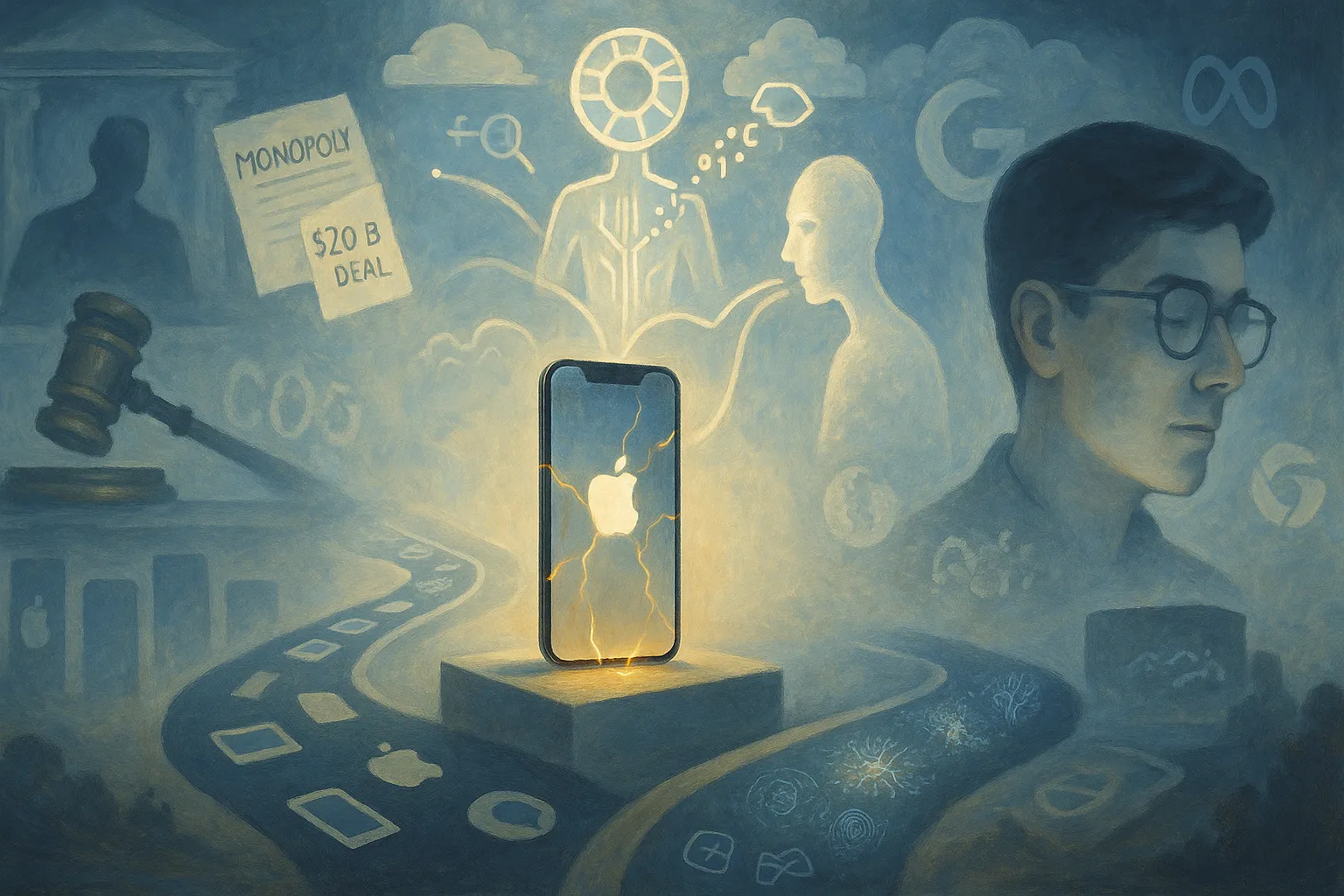Alphabet's stock took its sharpest dive of 2025 after Apple executive Eddy Cue declared AI would eventually replace traditional search engines. The testimony sent Google's parent company tumbling 7.3% in a single trading day.
Cue delivered this assessment during his testimony in the U.S. Justice Department's antitrust case against Google. Apple's senior vice president of services thinks AI-powered alternatives from companies like OpenAI, Perplexity, and Anthropic will take over how people find information online.
The stock plunge wiped billions from Alphabet's market value. Even Apple felt the tremors, with its shares dipping 1.1% as investors digested the potential loss of Google's estimated $20 billion annual payment for being Safari's default search engine.
Search Trends Signal Change
Safari searches dropped in April 2025 for the first time ever, Cue revealed. He blamed this decline on people turning to AI tools instead. Google rushed to counter this claim, insisting its search traffic from Apple devices continues to grow.
Google's search business shows signs of erosion. Users bypass traditional search engines for AI assistants that give direct answers instead of lists of links. This marks the first crack in Google's two-decade dominance of how people find information online. The shift mirrors how smartphones killed desktop computing – slowly at first, then suddenly.
Apple Eyes Post-iPhone Future
But Cue's most striking prediction went beyond search. "You may not need an iPhone 10 years from now as crazy as it sounds," he told the court. He compared this potential shift to Apple's decision to retire the iPod at its peak – calling that move "the best thing we did."
Safari's AI Integration Plans
The testimony pulls back the curtain on Apple's AI strategy. The company plans to add AI search options to Safari, though they "probably won't be the default" yet. Cue specifically mentioned talks with Perplexity about deeper integration.
This represents a shift for Apple, which has moved more cautiously on AI as competitors launched their own products. The company currently offers OpenAI's ChatGPT through Siri and plans to add Google's Gemini later this year.
Apple's cautious AI approach has drawn criticism. Its first wave of Apple Intelligence features disappointed users, while competitors like Meta and Microsoft pushed ahead with AI innovations. Meta's Ray-Ban smart glasses already feature advanced AI capabilities that outshine Siri.
Search Engines Face AI Challenge
The court testimony suggests Apple sees the writing on the wall. Traditional search engines might follow the iPod's fate – replaced by AI that understands context and delivers more precise answers.
Google faces pressure from multiple directions. A judge already ruled it illegally monopolized ad tech markets. Now its lucrative search deals face scrutiny, while AI threatens its core business model.
Cue admitted losing sleep over potentially losing Google's revenue sharing. The deal still offers "the most favorable financial terms" among search providers. But he believes technological shifts create opportunities for new players to compete.
Changing User Behavior
The revolution in search behavior is already happening. Users increasingly turn to AI assistants for complex queries, leaving traditional search engines for simpler lookups. This shift could accelerate as AI technology improves.
Apple sits at a crossroads. It built its trillion-dollar empire on controlling both hardware and software. But in AI, it relies heavily on partnerships. OpenAI powers Siri's chat features, while Google's Lens handles visual search on iPhones.
The next phase of computing might not center on smartphones at all. Cue's testimony hints at a future where AI assistants, possibly embedded in glasses or other wearables, become our primary interface with digital information.
Why this matters:
- The $20 billion Google-Apple search deal, once considered untouchable, looks increasingly fragile as AI reshapes how we find information
- Silicon Valley's power dynamics are shifting – even Apple admits the iPhone's dominance might not last forever in an AI-first world











